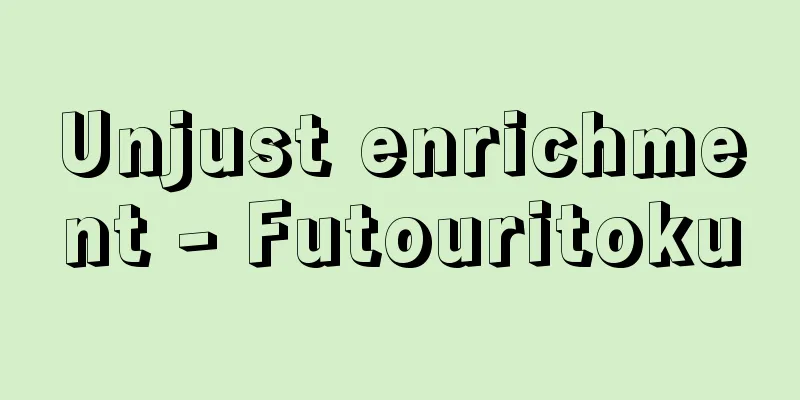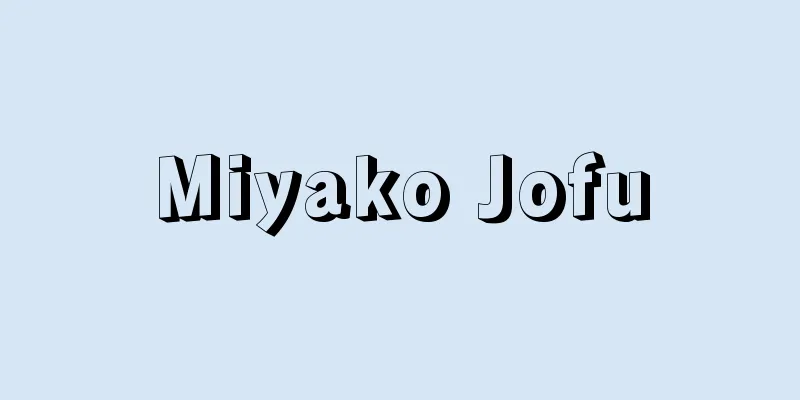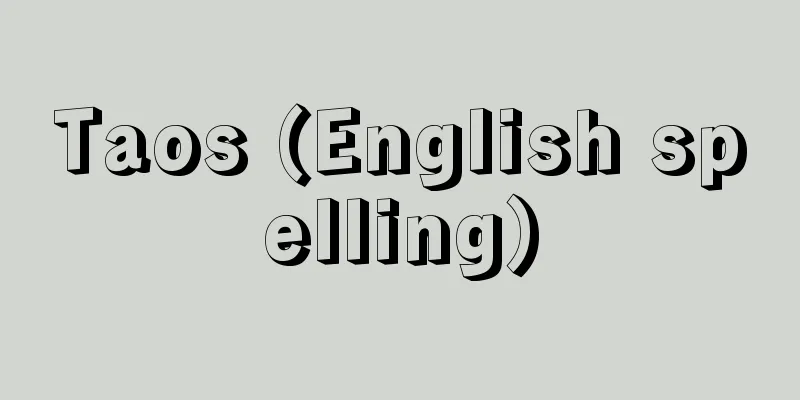Unjust enrichment - Futouritoku

|
Receiving benefits from the property or labor of another person without legal cause. The person who receives the benefits (beneficiary) is obligated to return the unjust enrichment to the person who suffered the loss (Civil Code Article 703). For example, if a buyer pays the purchase price to a seller under a sales contract, but the sales contract is rescinded and becomes invalid, the buyer can demand a return of the purchase price from the seller. As for the extent to which a beneficiary is required to return, those who were unaware that there was no legal cause (beneficiaries in good faith) may return only the extent to which they have a profit (actual profit). If the person purchases something and demolishes it thinking that it is theirs, there is no actual profit. However, money received as sales proceeds or rent usually becomes an actual profit even if it is spent. In contrast, beneficiaries who were unaware that there was no legal cause, for example those who knew that a sales contract was invalid (beneficiaries in bad faith), must not only return the profit they received with interest, but also bear the obligation to compensate for damages (Civil Code Article 704). In this case, if the land has already been sold, they may have to compensate not only for the sale price, but also the difference between the market value at the time of return. Because the provisions of Article 703 of the Civil Code are expressed abstractly, there is much debate as to what circumstances meet the requirements for the establishment of unjust enrichment. In addition, non-debt performance (when a payment is made with the knowledge that a debt does not exist) and tortious performance (when a payment is made for an illegal reason such as gambling) do not deserve protection, and claims for return are not permitted (Civil Code Articles 705 and 708). There are numerous special provisions regarding individual unjust enrichment, such as the proviso to Article 121 of the Civil Code (scope of the obligation to return by a person with limited capacity to act), Article 545 (obligation to restore the original state when a contract is terminated), Article 85 of the Bills of Negotiable Instruments Act, and Article 72 of the Cheques Act (right of a holder of a bill or cheque to claim the return of enrichment). [Takayoshi Ito] "Takashi Uchida, Civil Law II, 2nd Edition, Specifics of Obligations" (2007, University of Tokyo Press) [Reference item] | | |Source: Shogakukan Encyclopedia Nipponica About Encyclopedia Nipponica Information | Legend |
|
法律上の原因なしに、他人の財産または労務によって利益を受けていること。利益を受けている者(受益者)は、損失を受けた者に対して、不当利得の返還義務を負う(民法703条)。たとえば、売買契約により買い主が売り主に売買代金の支払いをしたが、売買契約が取り消されて無効になったときは、買い主は売り主に対して、支払いをした売買代金の返還を求めることができる。 受益者が返還を要する範囲は、法律上の原因のないことを知らなかった受益者(善意の受益者)は、利益が存する限度(現存利益)で返還をすればよい。買い受けた物が自分の物になったと思って取り壊してしまった場合には現存利益はない。もっとも売却代金や賃料として受け取った金銭は、費消しても通常は現存利益となる。これに対して、法律上の原因のないことを知っていた受益者、たとえば売買契約の無効原因を知っていた受益者(悪意の受益者)は、受けた利益に利息を付して返還しなければならないだけでなく、損害の賠償義務も負う(民法704条)。この場合、土地を売却してしまっているときは、売却代金だけでなく、返還時における時価との差額も賠償しなければならないことがある。 民法第703条の規定が抽象的な表現をとっているため、いかなる場合に不当利得の成立要件を満たすかについては議論が多い。なお、非債弁済(債務が存在しないことを知りながら給付をした場合)、不法原因給付(賭博(とばく)などのように不法な原因に基づいて給付した場合)は保護に値せず、返還請求は認められない(民法705条・708条)。 個別的な不当利得の特則として、民法第121条但書(制限行為能力者の返還義務の範囲)、第545条(契約解除における原状回復義務)、手形法第85条、小切手法第72条(手形・小切手所持人の利得返還請求権)など多数の規定がある。 [伊藤高義] 『内田貴著『民法Ⅱ 第2版 債権各論』(2007・東京大学出版会)』 [参照項目] | | |出典 小学館 日本大百科全書(ニッポニカ)日本大百科全書(ニッポニカ)について 情報 | 凡例 |
Recommend
Field theory - bun'yasetsu (English spelling) fēn yě shuō
The basic theory of ancient astrology that divides...
Monster - Mononoke
This refers to spirits of the living and the dead...
Cauderismo - Cauderismo
...The reasons for the emergence of such leaders ...
Isaac
A composer and organist of the Flemish school. One...
Orbit - Kido
〘noun〙① The path of an object or particle that mov...
Flagellant (English spelling)
A heretical Christian movement in the Middle Ages....
Durbin-Watson ratio
It is one of the statistics to test whether there ...
Tretā (English spelling) Treta
...That is, in one cycle from the great creation ...
Progeny Testing - Koudai Kentei
A method of cultivating and testing the next gener...
Clusius, C.de (English spelling) ClusiusCde
...This is why the Turkish tulip, which is said t...
Balanced Budget
In central and local government budgets, this ref...
FIRS - Financial Instruments and Exchange Commission
...As a sport, it is played in many countries, ma...
Yi (Yi) language
…The script for writing the Yi language. In Chine...
Reinforced concrete construction - TEKKIN CONCRETE ZOUKENCHIKU
A structure whose main framework is made of reinfo...
Kan Bo-zhou; K`an Po-chou
King of Gaochang, a state in the Turfan region of ...









